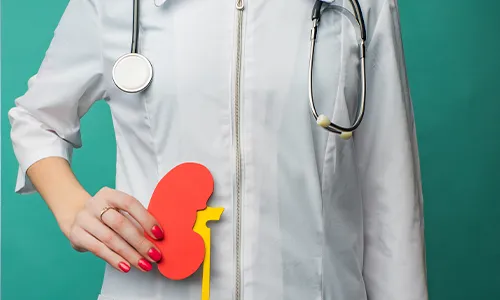

About Kidney Cancer
When kidney cells proliferate abnormally and become cancerous, then kidney cancer is identified. The kidney’s lining is where cancerous cells develop and slowly invade the entire organ. It occurs when healthy kidney cells in one or both kidneys proliferate uncontrollably and cluster together.


Risk Factors & Prevention
Adults are typically affected by kidney cancer, frequently discovered between the ages of 50 and 70. Kidney cancer is 2 to 3 times more common in men than women.
Some of the risk factors are:
- Using Tobacco/ Smoking
- Obesity
- High blood pressure
- Chronic kidney disease
- Long-term dialysis
- Family history of kidney cancer
How can it be prevented?
- Don’t smoke
- Avoid exposure to certain toxins
- Maintain proper weight
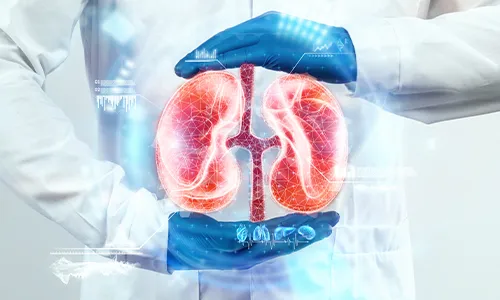

Screening
Some kidney malignancies can be detected early by some testing. The likelihood of successful treatment is increased by early diagnosis.
Some screening methods are as follows:
- Urine test
- CT scan
- MRI
- Renal Ultrasound


Symptoms & Signs
- Urine with blood in it
- Back pain or loin pressure or discomfort
- Lump on the back or the side
- Swelling of the ankles and legs
- Elevated blood pressure
- Low red blood cell count or anemia
- Fatigue
- Reduced appetite
- Unaccounted-for weight loss
- Recurring fever that is not caused by the flu
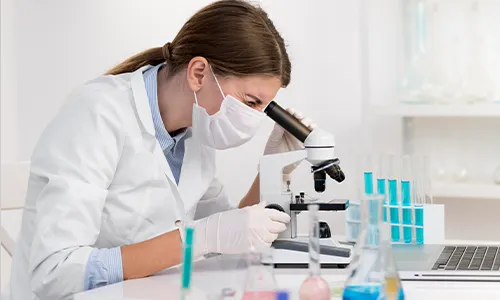

Diagnosis
Kidney cancer diagnostic tests determine whether you have the disease and how aggressive it may be.
Tools and tests include:
- Biopsy
- CT scan/ PET CT
- Lab Tests
- X-ray
- MRI
- Cystoscopy and nephro-ureteroscopy


Sub-Types and Stages
- Renal cell carcinoma
- Urothelial carcinoma
- Sarcoma
- Wilms tumor
- Lymphoma
There are over 30 different types of kidney cancer cells that pathologists have identified.
Stages
Stage 1:
The tumor has not migrated to the lymph nodes or other distant organs and is 7 cm or smaller.
Stage 2:
Despite being greater than 7 cm, the tumor has not yet migrated to the lymph nodes or other nearby organs.
Stage 3:
Although the tumor has not progressed to other body areas, it has reached the local lymph nodes.
Stage 4:
The tumor has extended outside Gerota’s fascia and into other body regions.
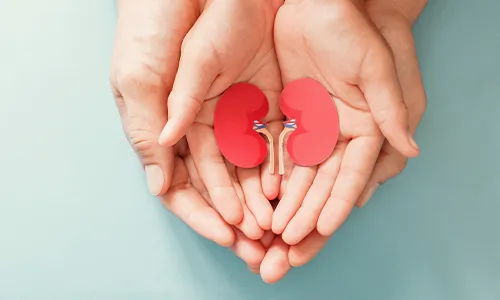

Treatment Modalities (Types of Treatment)
a. Surgical Oncology
The following methods are among the types of surgery done for kidney cancer:
- Radical nephrectomy- Removal of the tumor, the entire kidney, and surrounding tissue.
- Partial nephrectomy- Removal of the tumor by preserving kidney function.
- Laparoscopic and robotic surgery- Using keyhole incisions to insert telescoping tools to perform a nephrectomy on the kidney.
- Cytoreductive nephrectomy- If the disease has spread beyond the kidney, it may be surgically removed along with the entire kidney.
- Metastasectomy- Removal of the tumor from a single diseased organ, such as the liver, pancreas, or lung.
b. Medical Oncology
Sometimes the tumor’s features or the patient’s general health make surgery inadvisable.
The following course is recommended:
- Radiofrequency ablation- An electric current is injected into the tumor to kill cancer cells.
- Cryoablation-To freezes the cancer cells, a metal probe is inserted into the cancerous tissue through a tiny incision.
- Targeted therapy- Therapy like Anti-angiogenesis therapy, Bevacizumab, Tyrosine kinase inhibitors (TKIs), mTOR inhibitors, & HIF2a inhibitor.
- Immunotherapy- To strengthen your immune system’s capacity to attack cancer cells to combat the disease.
- Chemotherapy- Uses drugs to kill cancer cells, usually by preventing them from proliferating, dividing, and producing more cells.
c. Radiation Oncology
- As a first-line therapy for kidney cancer, radiation therapy is ineffective. It is rarely used alone to treat kidney cancer.
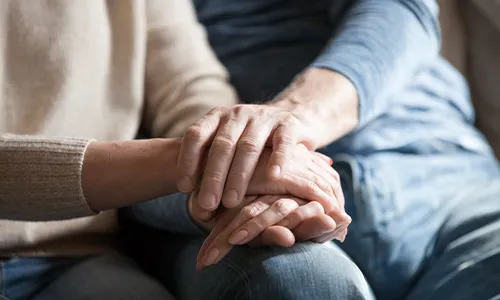

Coping with Treatment
Along with the medical side effects of Kidney cancer therapy, patients also deal with the financial burden of cancer care and the emotional and social impacts. Talking to a counselor or family member can help them to cope with treatment. MOC provides facility of psycho Onco-Counseling and Nutritional counseling to help patients.


Do’s & Don’ts During Treatment
Do’s
- Maintain a well-balanced diet
- Watch your consumption of protein.
Don’ts
- Avoid consuming too much salt.
- Don’t stop working out.


Post-treatment
Kidney cancer survivors can undergo long-term side effects from surgery and chemotherapy. They can also have a skin rash, extreme fatigue, fever, chills, weakness, muscle aches, loss of appetite, and nausea. Survivors require empathy, mental strength, and support from their families, and they can also join Kidney cancer Post-Treatment Survivorship Support Groups.


Follow-up Cancer Care Plan
Post-treatment, one must request a follow-up treatment plan. Doctors provide a personalized treatment plan based on the type and stage of cancer.
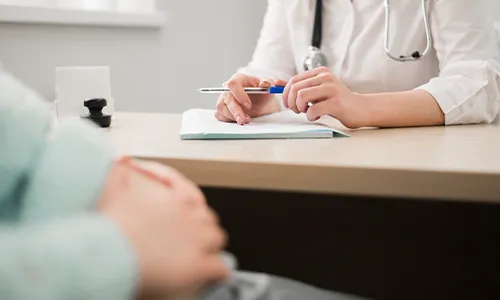

Surveillance and monitoring for recurrence
One aim of follow-up care is checking for a recurrence. One should never miss follow-up visits and never ignore any symptoms of recurrence. Because some cancer cells may remain undiscovered in the body in small locations that don’t respond to treatment, cancer can reoccur. A physician who is knowledgeable about your medical history can provide you with personalized information regarding your risk of recurrence during follow-up care.
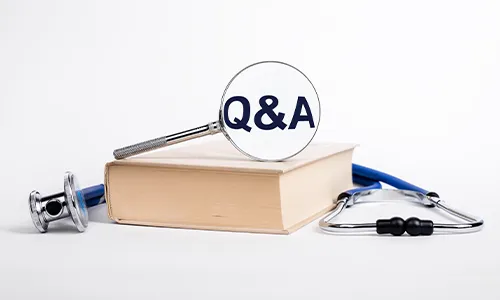

FAQ’s
-
Can kidney cancer be cured?
Kidney cancer is frequently efficiently treated and even cured when discovered early.
-
Is surgery usually required for the treatment of kidney cancer?
The best course of action for treating kidney cancer will depend on several variables, including the cancer’s stage, the patient’s age, general health, and personal preferences.
-
Early Kidney Cancer Symptoms?
Urinary blood, a persistent fever that is not brought on by a bacterial or viral infection, Anemia with ankle or foot swelling.
-
How Might the Cancer in My Kidneys Affect the Rest of My Body?
Kidney cancer may begin to impact other parts of your body, causing generalized fatigue, appetite loss, and other symptoms.




